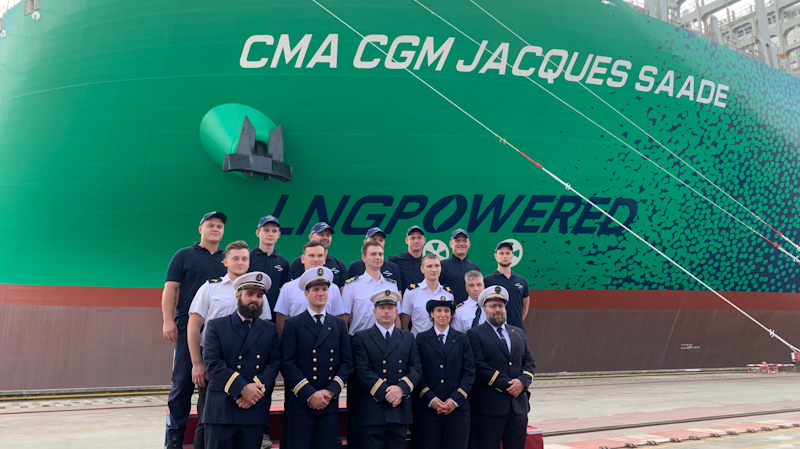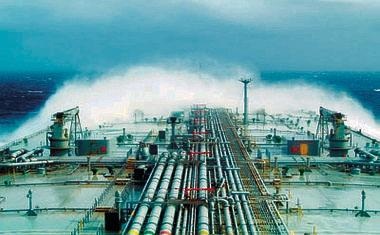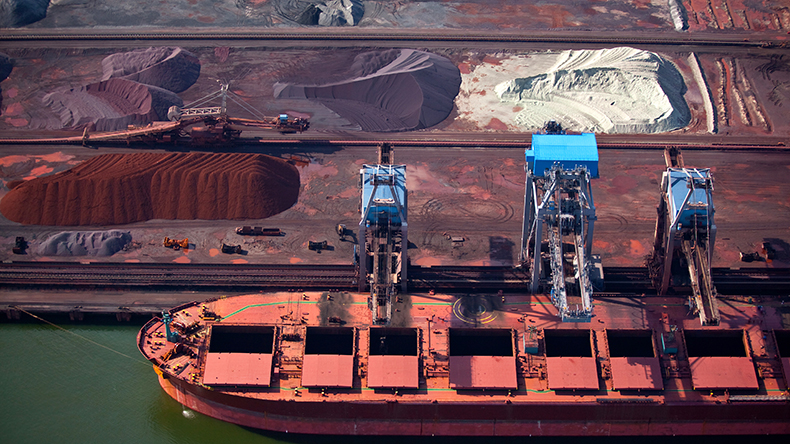Weekly briefing: Cyber attack on shipping; bearish tanker outlook
Days after launching a new flagship LNG vessel, the world’s fourth-biggest container line suffers a crippling ransomware attack
CMA CGM has had an eventful past week with a new 23,000 teu vessel going into service, investment in a private airline group announced and a ransomware attack shutting down its network. Meanwhile, the signs are for a slow recovery in crude oil demand as global diesel and gasoil exports fell to an 11-year low
THIS weekly briefing provides sector-by-sector coverage of the biggest news and analysis in shipping.
Follow the links within the text to the relevant news items in each market segment
Containers
The past week has been a circular one, with companies and stories from a week ago coming back into focus by the end of it.
Take CMA CGM, for example. Last week started well for the company, with the entry into service of its flagship 23,000 teu LNG-fuelled CMA CGM Jacques Saadé, the first deepsea containership to ply the main lane trades.
By the end of the week the focus had changed from sea to air, as the French carrier took vertical integration to new heights with an investment in Dubreuil Group Aero, as it sought to expand its logistics operation
But over the weekend, the fourth-largest container line took the dubious honour of being the fourth container line to suffer a ransomware attack.
The Ragnar Locker encryption malware forced the line to shut down its network as it desperately sought to contain the effect of the hack.
Initial communications from the company were poor, leaving analysts wondering how serious the impact had been and frustrating its customers, who couldn’t book cargo or find out where their cargo was.
However, CMA CGM has now has restored all communications to its offices, including electronic data interchange connections, and shippers can now use manual processes and INTTRA to make bookings as the line prepares to reopen its full booking system.
Security issues of another sort also bookended the week, with the launch of the Cargo Integrity Group, a coalition of shipping organisations dedicated to promoting better adoption of the worthy but wordy CTU Code on packing containers.
Poorly packed containers, and those containing misdeclared hazardous goods, are thought to be behind much of the $6bn of losses caused in the supply chain each year due to fires, stack collapses and other transport issues.
The CIG wants to use its presence across the supply chain to trickle down simplified information on the CTU Code to ensure best practices occur right at the start of the chain, preventing losses further along.
The need for such a movement was reiterated this week, with yet another boxship fire. Fortunately, the container fire on the 2008-built X-Press Godavari was controlled and there was no significant damage or loss of life.
But previous casualties, such as APL Vancouver and Maersk Honam, have shown how bad the damage can be from something as simple as a badly packed container.
Box shipping will need to keep an eye on both its physical and online security for some time yet.
Tankers
The tanker sector has issues with the middle classes of refined products, according to the new Lloyd’s List Maritime Markets Outlook, which means a very bearish outlook for crude and product tankers for the fourth quarter of the year and into 2021.
Global diesel and gasoil exports have fallen to the lowest level in 11 years, and shipments of jet fuel plunged to 2004 levels as lockdown and remote working crippled demand and all the signs are pointing to a very slow recovery.
Watch the new monthly briefing, featuring Lloyd’s List Markets Editor Michelle Wiese Bockmann, Head of the Lloyd's List Intelligence Consulting team Christopher Pålsson and Lloyd’s List Editor, Richard Meade, via this link.
Newly launched very large crude tankers and suezmax tankers are being diverted to transport and storage clean products, according to data from Lloyd’s List Intelligence, adding further pressure to the product tanker market as the larger vessel sizes cannibalise trade.
At least 12 tankers built in 2020, including seven VLCCs, are laden with clean products and tracked sailing to their next destination in the Atlantic or storing middle distillates. The vessels loaded an estimated total of 21m barrels of refined products on their first voyage from ports in Asia or the Middle East Gulf.
The use of larger-sized tankers for clean storage requires certain market conditions to make it practical, because the vessels are designed to ship crude.
The oversupply of diesel, gasoil and jet fuel, alongside market contango conditions, is driving a resurgence of newbuilding tankers trading clean.
Crude and clean products held in floating storage have declined to the lowest level in 21 weeks, as port congestion eased further in China.
Some 237.9m barrels on 178 tankers was tracked by September 21, down by 16.9m barrels on the same period a week ago, according to data from Lloyd’s List Intelligence.
The figure is the lowest since early May, shortly after Brent crude futures slipped to a 21-year low amid a steep contango that promoted traders to buy and store oil and refined products for future sale at a profit. At the beginning of February, floating storage was tracked at 117.6m barrels.
Finally, Shell is betting on liquid hydrogen as the preferred zero-emissions ship fuel and aims to bring online potentially one of the world’s first hydrogen-powered vessels by 2021.
The energy giant argues, however, that international shipping should start switching to liquefied natural gas and other greener fuel alternatives now, rather than wait for the availability of zero-emissions fuels.
The company meanwhile also announced plans to cut up to 9,000 jobs as part of a streamlining move to adapt to a low-carbon future. Shell said the reorganisation would result in annual savings of up to $2.5bn by 2022.
Dry Bulk
Capesize rates were given a boost by Brazil, with the average weighted time charter up almost 50% on the week to just under $24,000 per day. The positive sentiment was expected to continue through October partly due to tightness being reported in both the Atlantic and Pacific basins.
Upside potential is also seen for the overall dry bulk market due to logistical issues arising from the crewing crisis, according to London-based consultancy Maritime Strategies International. Looking ahead to 2021 , a recovery in demand should outweigh fleet growth, which will drive an uptick in employment rates.
Meanwhile, coronavirus cases have been reported by Germany’s Oldendorff Carriers with 17 crew members testing positive on board its bulker Patricia Oldendorff, which is anchored off Port Hedland, northwestern Australia. A number of the crew remain in hotel quarantine.
In other news, US-listed Scorpio Bulkers has started selling vessels as it focuses its attention on the offshore wind sector. Following completion of the sale of a four-year old kamsarmax, the company will be left with 53 bulkers.
Danish owner and operator Norden meanwhile raised its full-year earnings guidance by $30m due to strong performance in its Dry Operator business unit. The company said it had managed to secure contracts with higher margins per vessel day.
While Norden was upbeat, Japanese shipping company NYK booked losses on bulker redeliveries amid uncertainties. It said it had returned chartered-in dry bulk vessels lacking cargo fixtures as part of its reforms to reduce spot market exposure.




